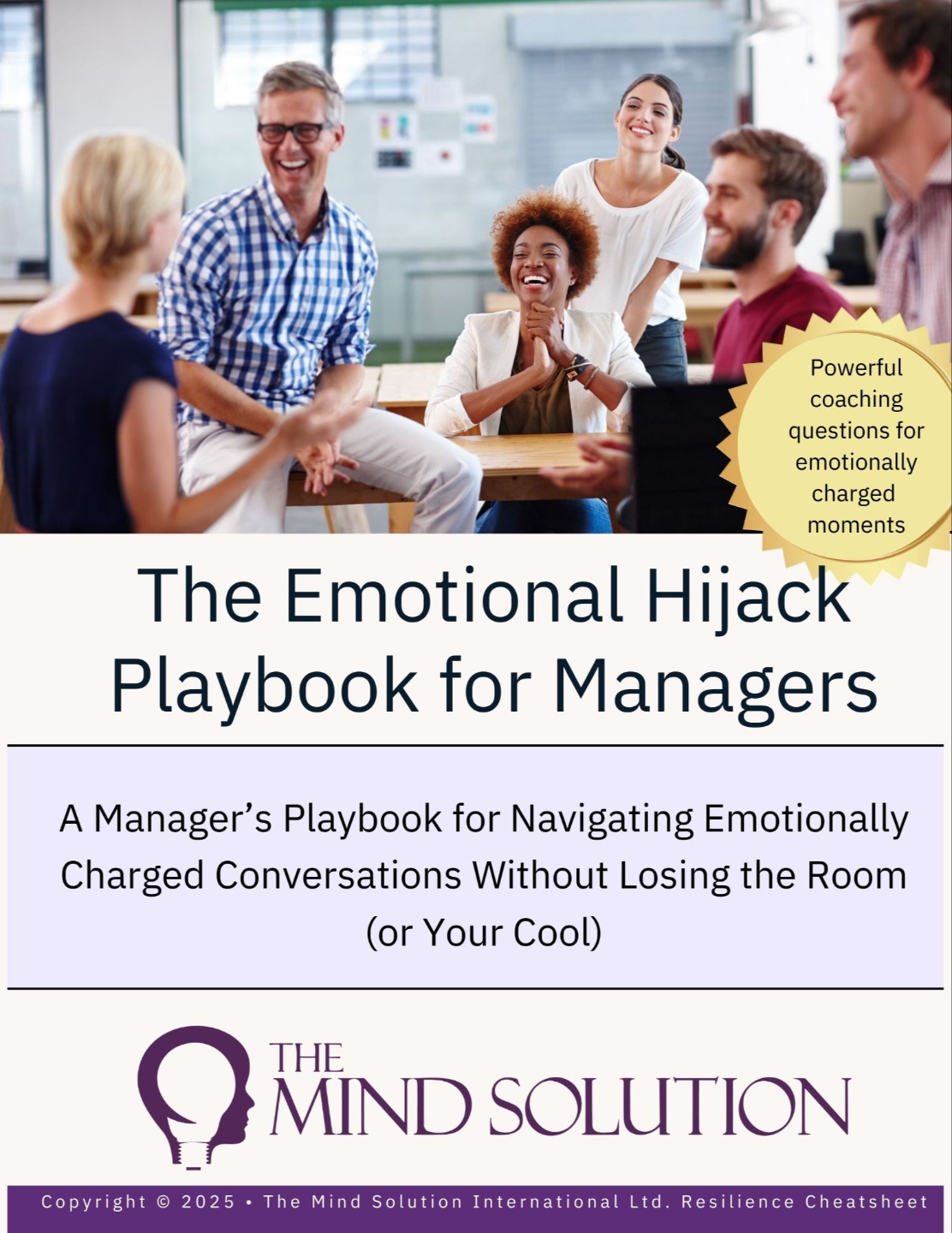Why Mental Health Training for Managers Starts with One Simple Principle
Aug 01, 2025
COVID Changed Everything — But Not In The Same Way For Everyone
One of the organisations I had the great pleasure of training during COVID was Sofology. We trained over 200 of their managers in mental health training for managers, and honestly, in many ways, it was the perfect time to be having those conversations.
Because let’s be real, the whole world was feeling the impact of the pandemic. But that impact didn’t look the same for everyone.
Some people loved working from home. They loved ditching the two-hour commute, they loved the peace and quiet away from the open-plan office, and for some, their mental health actually improved.
But for others? It was a totally different story.
Furlough Might Sound Like a Break — But That’s Not How It Feels
At Sofology, some employees had been furloughed because let’s face it, you can’t exactly sell sofas when your stores are shut. And while furlough might sound great on paper, paid time off, the reality is often far more complicated.
Lockdown restrictions meant people were stuck inside, isolated, cut off from social interaction, worrying about job security and the future. And so even though they weren’t “working,” their emotional bandwidth was often maxed out.
That’s the thing we highlight in our training. You can’t make assumptions about how someone is doing based on their circumstances. You have to look deeper.
The Camera Went Off — And Everything Changed
In one of the training modules, we teach managers how to spot subtle signs that someone might be struggling. One manager in the training noticed that her supervisor, who’d always had her camera on in meetings, suddenly started switching it off.
It struck her as unusual. That one small shift caught her attention.
And because of the confidence she’d gained in our first module, she followed her instinct. She reached out to see how her colleague was doing.
At first, the supervisor said she was fine. But then, in the next meeting, the camera was off again.
The manager didn’t drop it. She persisted kindly, consistently. Because when you learn to listen to behaviour, you stop needing dramatic signs to justify checking in.
Eventually, the supervisor opened up.
She shared that she’d found a lump in her breast. She was waiting for results from a biopsy and, understandably, wasn’t in a great place emotionally.
Training Creates the Space for Real Human Leadership
Now, one of the things we talk about in the mental health training is being mindful of where you have these conversations.
And this manager had taken that to heart. Because they lived relatively close to each other, and because we were still under social distancing guidelines, they arranged to meet up in a local park for a walk.
And the manager just listened.
She didn’t jump in with “I’m sure it’ll be fine.”
She didn’t try to fix it or oversympathize.
She just held the space.
She listened the way we teach in module two: with presence, respect, and empathy.
And the supervisor told her everything.
The Outcome Was Positive — But the Impact Was Deeper Than That
Thankfully, the outcome of the biopsy was good. It turned out to be a cyst. But honestly? That wasn’t the real turning point.
The real shift happened in the relationship.
That manager and supervisor built deep trust through one conversation. And that’s the power of mental health training, when it’s done well, it strengthens human connection. It builds real leadership capability. And it reminds us that employees are human first.
That manager didn’t make assumptions. She stayed curious. She reached out, and then she followed through.
This Is Why Mental Health Awareness Training for Managers Is So Important
It’s about teaching managers how to slow down, how to listen, how to build trust, even over a Teams call. It’s about creating psychological safety through every interaction.
And it’s about building emotionally intelligent leadership teams who know how to have real conversations in a world that moves fast and burns people out.
Most people don’t walk into their manager’s office and say, “I’m not coping.”
They say “I’m fine” — and then start turning their camera off.
It’s up to leaders to notice the shift, resist the urge to assume, and create the space for people to share.
And this is the kind of shift that doesn’t just help people feel better. It keeps them at work. It prevents burnout. It builds loyalty. And it keeps your culture human.
Final Thoughts
So if you’re reading this and wondering whether your managers could do with a deeper toolkit, a way to lead that’s grounded in emotional intelligence, not just policy, I’d love to talk.
We’ve trained hundreds of managers across the globe, and the results speak for themselves. Not just in retention and engagement, but in stories like this one.
If you want that kind of culture in your organisation, let’s talk.
👉 Click here to book a call about bringing mental health awareness training into your business.
The Emotional Hijack Playbook For Managers
A Manager’s Free Resource for Navigating Emotionally Charged Conversations Without Losing the Room (or Your Cool).
Perfect to use in your next one-to-one.







